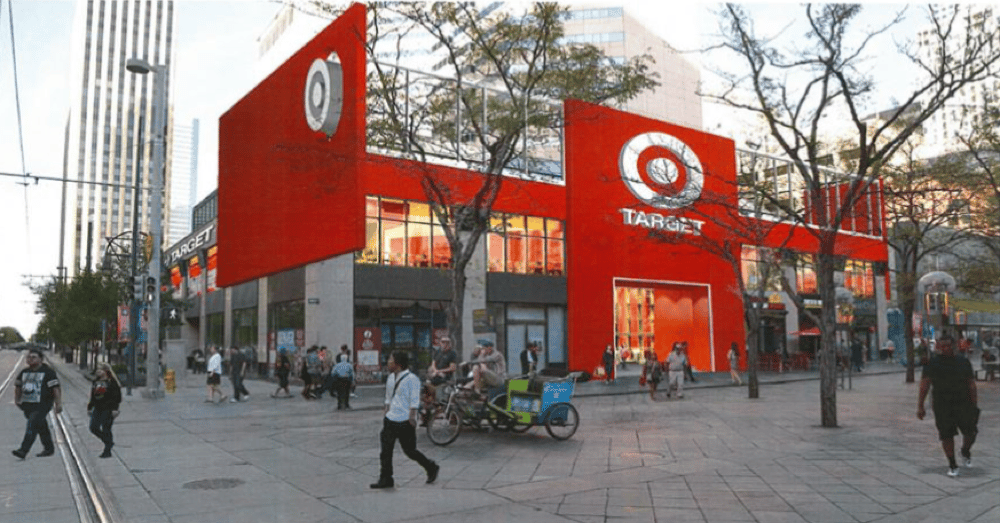
Denver City Council agreed last month to shell out $4 million of taxpayer money if it meant getting a Target on the 16th Street Mall.
As today's chart of the week shows, the incentive approved Feb. 27 is the largest perks package Denver's offered a company during the last five years — tied with the $4 million OKed in 2015 to land United Airlines' pilot training facility.
Denver uses money from the Business Incentive Fund to attract businesses, support expansions and keep companies in the city. About $1.2 million goes into the fund each year.
From 2012 through 2016, the city signed incentive contracts with 34 companies. The average incentive amount was $330,654.
"What we really look at when we consider this particular tool is if the project creates significant jobs. Are these quality jobs? Are these jobs in our target industries?" said Turid Nagel-Casebolt, director of Business Development at the Denver Office of Economic Development.
On average, companies receiving incentives from 2012 through 2014 were projected to create 298 jobs each.
But it's not just jobs the city's focused on. The Office of Economic Development also looks at whether the company applying for an incentive would establish a base in Denver, support emerging industries, make a significant investment in the area or be a catalyst for changing a neighborhood.
"Target, for instance, is a very catalytic project," Nagel-Casebolt said.
When considering how much to offer a company, the Office of Economic Development tries to make sure it's always getting more than it's giving.
"In order to ensure a strong fiscal benefit for the city, we do not offer BIF incentives that would exceed 50 percent of the additional direct, core tax revenue for the contracted incentive period. In fact, our incentive offers typically are far below this threshold," said Derek Woodbury, office spokesman.
In practical terms, that means the city could only offer a company like Target $4 million if it determines that the business will be able to bring in at least $8 million over how long the incentive is available. In Target's case, the company is expected to bring in $8.2 million to $13.7 million in sales and use taxes over 20 years.
Denver City Council has to sign off on any incentives that are worth $500,000 or more.
Technically, the $4 million approved to lure Target is not going directly to the company.
"The incentives that you’re referencing wouldn’t be for Target, rather for the developer and owner of the 16th and California property. The developer is Gart Properties," said Kristy Welker, Target spokeswoman.
Welker said "there isn’t anything new to share" about if and when the company plans to take up residence on 16th Street.
The incentive proposal for Gart Properties calls for $2 million to go toward extensive tenant improvements, and another $2 million to go back to Target over a multi-year period by letting the retailer keep half the sales and use tax generated on site. After that $2 million was paid out, a portion of the sales and use tax would go toward paying off the first $2 million.
"The establishment of a national brand retail store centrally anchored on the 16th Street Mall will be a powerful boost for downtown, sustaining visitors’ shopping and entertainment experience, and further leverages Denver’s already significant public and private investments in our vibrant downtown corridor," according to the Office of Economic Development.
Overall, Denver has been doing a good job administering the Business Incentive Fund, but the Target deal raises some questions, said Brad Segal, economic development consultant for Progressive Urban Management Associates.
PUMA is a Denver-based consulting firm that provides services to advance downtown and community development.
Target coming to downtown has long been a dream of city leaders and would be a good thing for the area, Segal said, but the company is going to similar areas throughout the U.S. without government assistance.
"The other thing that concerns me about the incentive is from my understanding it's mostly general fund money," he said. "So Denver is making a decision for economic development purposes it would rather spend general fund money on a downtown Target than it would on other parts of the city.
"There are neglected parts of the city that need a lot of attention. Honestly, $4 million. If you spread that over to Federal Boulevard, Morrison Road and East Colfax, it would have a lot of impact on those areas that are arguably not experiencing the same impact as downtown is."
Business & data reporter Adrian D. Garcia can be reached via email at [email protected] or twitter.com/adriandgarcia.
Subscribe to Denverite’s newsletter here.













